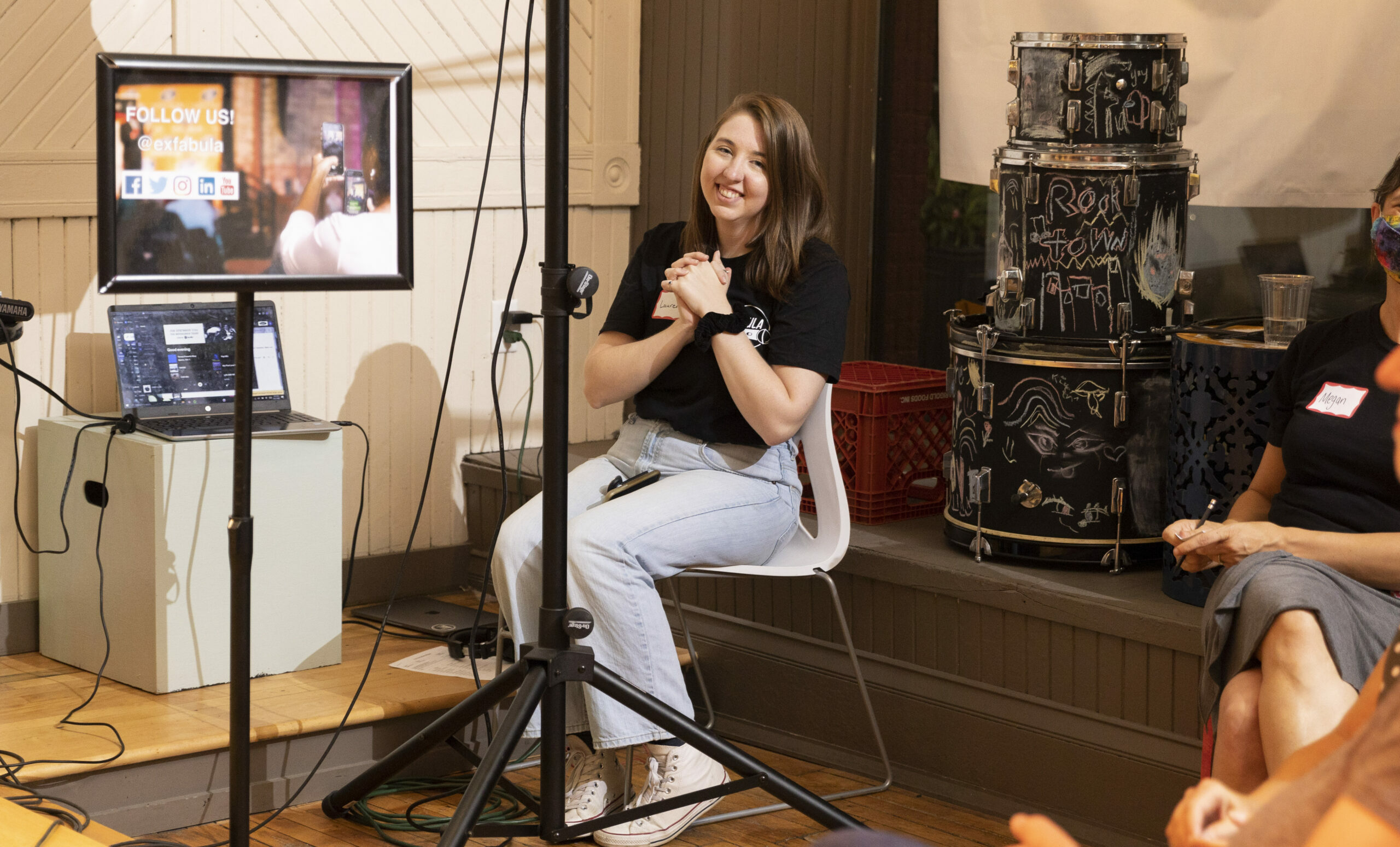Pronouns: she/her
I sat in a darkened theater with the rest of the audience while fourteen stories from the Springfield, Ohio LGBTQ+ community were being performed on stage. While everyone was watching the actors, I was watching the faces of those whose stories were being told. There were tears in most of their eyes as they listened to their own words being spoken out loud in a room full of friends, family, and strangers. I had started this project with the hope that these stories would reach audiences who needed to hear them, whether that be a queer kid who was afraid of being true to themself, or that was a close-minded city politician who needed to hear a new perspective but sitting there in that theater I realized this project was for the storytellers. The community had been fighting for so long to be heard and feel like their stories mattered, and the fact that this project was able to give that to them was the best outcome I could have hoped for.
That project was called Facing Intolerance, and it was the first time I really understood the power of first-person storytelling. I grew up in the world of theater with my dad being a director and my mother a costume designer, so I knew the power a good story could have on its audience. However, most of the stories I saw performed weren’t from the community and the stakes of Facing Intolerance were different. This was a community that had, at that point, been fighting for 10 years to get protection against discrimination in housing and employment and their willpower was fading. As a naïve queer college student, my dream was for this project to change the minds of the city council members who were dead set against this cause. I came to realize this may have been too lofty of a goal, but also that this project could serve a different and maybe more important purpose: to show the LGBTQ+ community that people are listening, they care, and to remind them that their feelings and experiences are valid. They didn’t stop fighting and in 2019 all their efforts became worth it when the city council passed their law.
After this project, I realized that the act of true and deep listening is more important than I ever imagined and that what I wanted to do for the rest of my life was to make space for people to share the stories that are important to them. I pursued a Master’s degree in Oral History from Columbia University, and I now have had the privilege of sitting in living rooms, bars, cars, artist studios, and parks and listening to the stories of individuals who are leaving lasting marks on the world and their communities.
Everyone has a story, but not everyone is given the space or encouragement to tell that story, which is why I was so excited when I discovered the work of Ex Fabula. Being able to work for an organization whose mission is to empower everyone to share their stories and to create spaces where empathy and community are fostered is a dream come true. I can’t wait to help share Ex Fabula’s mission with the world, share in the community that is Ex Fabula, and of course, be there to listen to and support storytellers as they share their amazing stories.
Lauren Instenes has been working in marketing since graduating from Columbia University with a degree in Oral History. She has over 10 years of experience working in the non-profit world in a variety of roles including: volunteer management, website management, social media and marketing. She is the former editor and guest host of The Seed Field Podcast and was the project lead for Facing Intolerance: A Facing Project. Outside of work you can find her cuddling her pug, Gator, working backstage in local theatre productions, and climbing the walls at Adverture Rock!






Leave A Comment